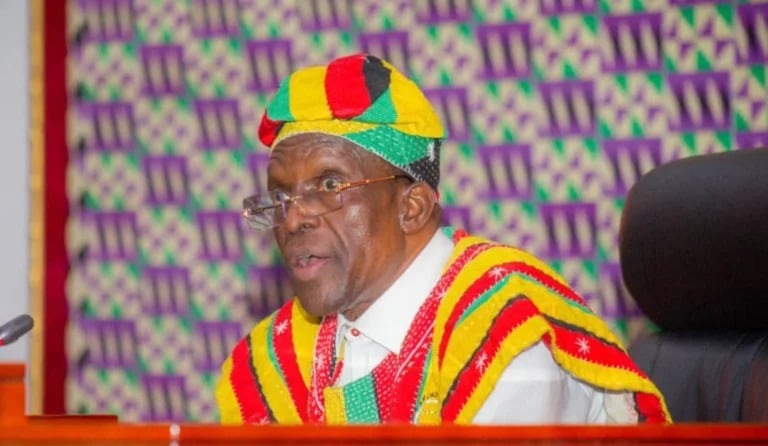Parliamentary Privilege is Not Above the Law: A Call for Integrity and Accountability
The Speaker of Parliament, Alban Sumana Kingsford Bagbin, delivered a stern message to Members of Parliament (MPs) emphasizing that parliamentary privilege does not shield them from legal scrutiny. He stressed that while these privileges are designed to protect the legislature’s independence, they are not intended to obstruct justice or serve as "escape routes" for members facing legal challenges. Mr. Bagbin underscored the importance of upholding the law and maintaining the integrity of Parliament, reminding MPs that "privilege is not impunity" and that all individuals, including elected officials, are bound by the law. This clear articulation of the relationship between parliamentary privilege and legal accountability sets the tone for ethical conduct and responsible governance. The Speaker’s message serves as a crucial reminder that Parliament is not above the law but rather a vital institution operating within its framework.
Mr. Bagbin emphasized the importance of due process in addressing allegations against MPs. He assured the House that Parliament would not tolerate unlawful or politically motivated persecution of its members. Conversely, he stated that Parliament would not protect members who attempt to exploit parliamentary privileges to evade legitimate investigations. This balanced approach demonstrates Parliament’s commitment to both protecting its members’ rights and ensuring accountability within its ranks. The Speaker acknowledged a rise in formal communications from investigative and law enforcement agencies concerning MPs’ conduct, with some cases predating their parliamentary service and others arising during their tenure. He stressed the significance of these issues, stating that they affect public perception of Parliament’s integrity and, ultimately, the health of democracy itself. The acknowledgment of these investigations highlights the seriousness with which Parliament views ethical conduct and the potential ramifications of misconduct on the institution as a whole.
The Speaker’s address also included a call for patriotism and unity amongst MPs in fulfilling their legislative duties. He reminded them that Parliament is a co-equal branch of government, responsible for scrutinizing policies and holding the Executive accountable. Mr. Bagbin urged MPs to treat their plenary sessions with the seriousness they deserve, recognizing their role as equal partners in governance. He emphasized the high expectations of the Ghanaian public, who look to Parliament for ethical, purposeful, and proactive leadership. This appeal to patriotism and the acknowledgement of public scrutiny underscores the importance of Parliament fulfilling its constitutional mandate with integrity and transparency. The Speaker’s words serve as a reminder that MPs are accountable not only to the law but also to the citizens they represent.
Majority Leader Mahama Ayariga outlined a legislative agenda aimed at enhancing transparency and accountability within the government. He announced that the Attorney-General and Minister for Justice, Dr. Dominic Ayine, would soon present a series of important bills to Parliament, including the Conduct of Public Officers Bill, amendments to the Criminal and Other Offences (Procedure) Act, the Economic and Organised Crime Office Bill, Legal Education Reform Bill, Legal Profession Bill, and the Intestate Succession Bill. These proposed legislative actions signal a commitment to strengthening legal frameworks and promoting ethical conduct within the public sector. The focus on anti-corruption measures and legal reforms indicates a proactive approach to addressing potential vulnerabilities within the system.
Deputy Minority Leader Patricia Appiagyei expressed concerns about potential threats to judicial independence under the current administration. She criticized alleged attempts by the Presidency to remove the Chief Justice and appoint loyalists to the Supreme Court, arguing that these actions risked undermining the judiciary’s impartiality. Ms. Appiagyei cautioned against executive overreach and the potential for these actions to erode public trust in the judicial system. This expression of concern from the opposition highlights the importance of a balanced separation of powers and the need for vigilance in safeguarding the independence of the judiciary. The assertion that the executive branch is attempting to influence the judiciary underscores the potential risks to democratic principles and the rule of law.
The Speaker’s address and the subsequent discussions underscore the critical importance of upholding ethical standards, respecting the rule of law, and maintaining a healthy separation of powers within a democratic system. Mr. Bagbin’s strong stance on parliamentary privilege, coupled with the outlined legislative agenda and the concerns raised about judicial independence, paint a complex picture of the ongoing efforts to strengthen governance in Ghana. These proceedings demonstrate both the challenges and the opportunities that exist in ensuring transparency, accountability, and the proper functioning of democratic institutions. The emphasis on these core principles highlights the commitment of Parliament to fulfilling its role as a vital check on executive power and a champion of the rule of law.














